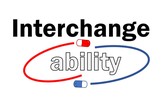Guidelines
FDA releases Guidance for Industry on Real-World data
In July 2024, the US Food and Drug Administration (FDA) provided recommendations to drugmakers for assessing the use of electronic health records and medical claims data to support their applications.
FDA interchangeable biosimilars guidance update on revised approach to switching studies
In June 2024, the US Food and Drug Administration (FDA) issued a draft guidance for industry ‘Considerations for Demonstrating Interchangeability with a Reference Product: Update’ [1]. This draft guidance outlines considerations for switching studies to demonstrate a biological product's interchangeability with a reference product.
FDA Guidance on Promotional Labelling and Advertising for Biologicals, Biosimilars and Interchangeables
The US Food and Drug Administration (FDA) announced on 24 April 2024, the availability of a revised draft guidance for industry entitled ‘Promotional Labeling and Advertising Considerations for Prescription Biological Reference Products, Biosimilar Products, and Interchangeable Biosimilar Products Questions and Answers Guidance for Industry’.
Italy publishes new guidelines on pricing and reimbursement of generics and biosimilars
The Italian Medicines Agency (Agenzia Italiana del Farmaco, AIFA) announced on 30 December 2020 that it had published new guidelines for the pricing and reimbursement of medicines, which include a new streamlined procedure for generics and biosimilars.
New decree for the prescription and commercialization of medicines in Argentina
Through Decree 63/2024, published on 22 January 2024, in the Official Gazette of the Argentine Republic, progress began on the regulation of the Decree of Need and Urgency (DNU). DNU 70/23 regarding articles related to the prescription of medications and their commercialization. Likewise, work is also being done on upcoming regulations.
FDA issues draft guidance on biosimilars and interchangeable biosimilars labelling
The US Food and Drug Administration (FDA) announced on 15 September 2023, the availability of a draft guidance for industry entitled ‘Labeling for Biosimilar and Interchangeable Biosimilar Products’ [1].
WHO’s revised guideline to safe and effective biosimilar products
The review article published by Kang H-N et al. in 2023 presents the key updates that have been incorporated in the World Health Organization (WHO) revised guidelines on evaluation of biosimilars adopted by the WHO Expert Committee on Biological Standardization in April 2022 [1]. The updates include the following but are not restricted to these alone and should be read in conjunction with the guidelines [2]:
New FDA guidance on statistical approaches to establishing bioequivalence
In December 2022, US Food and Drug Administration (FDA) updated its draft guidance on statistical approaches to establishing bioequivalence [1]. Following this, the public were given 60 days to comment of the draft.
UK updates guidance to allow biosimilars interchangeability
The UK’s Medicines and Healthcare products Regulatory Agency (MHRA) updated its 2021 guidance on biosimilars [1] in November 2022 to allow interchangeability between biosimilars if they use the same reference medicinal product (RP).
Guidelines for the regulation of biologicals, biosimilars and radiopharmaceuticals in Brazil
ANVISA (Agência Nacional de Vigilância Sanitária), the National Health Surveillance Agency of Brazil, published in November 2022 three new guidance documents on the regularization of biological, biosimilar and radiopharmaceutical products.










